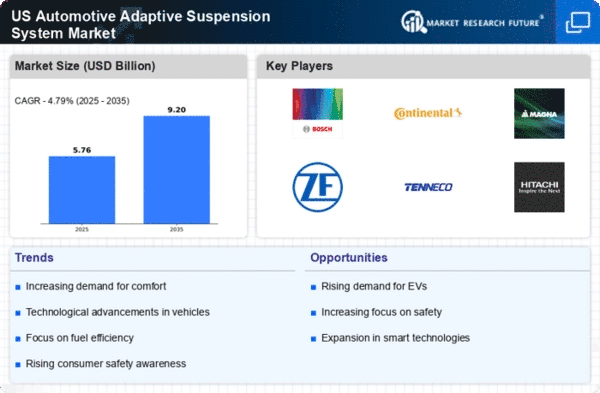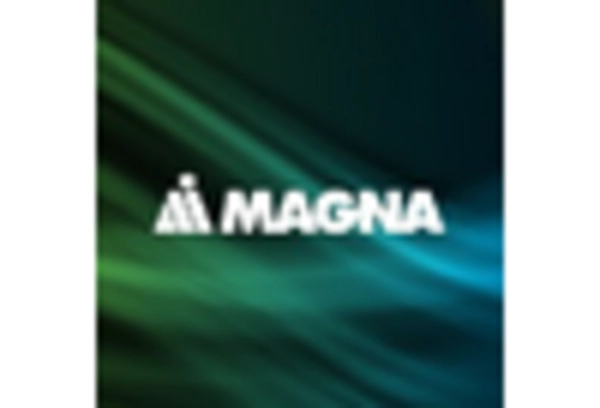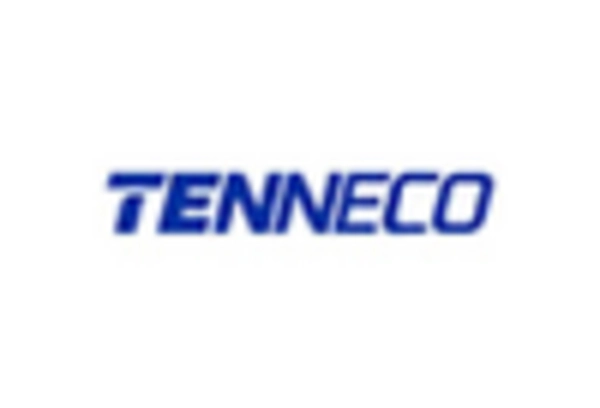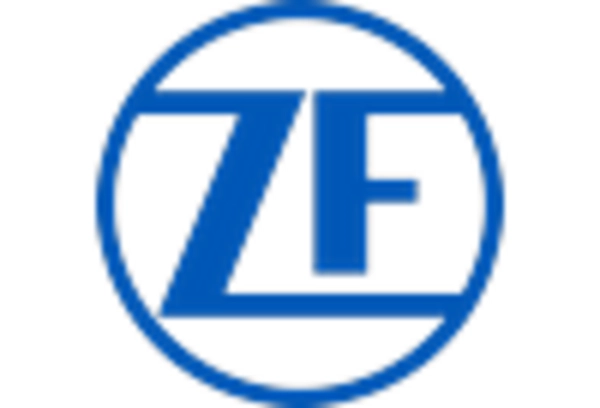Increased Investment in R&D
The automotive adaptive-suspension-system market is benefiting from heightened investment in research and development (R&D) by automotive manufacturers. This investment is aimed at creating more efficient and effective suspension systems that can adapt to diverse driving conditions. With the automotive industry increasingly focusing on innovation, R&D expenditures are expected to rise significantly, potentially exceeding $10 billion annually by 2026. This influx of funding is likely to accelerate the development of next-generation adaptive suspension technologies, thereby propelling the automotive adaptive-suspension-system market forward. As manufacturers strive to differentiate their products, the emphasis on R&D will play a crucial role in shaping market dynamics.
Rising Focus on Vehicle Safety
This market is experiencing a notable surge in demand due to the increasing emphasis on vehicle safety. Consumers and manufacturers alike are prioritizing advanced safety features, which include adaptive suspension systems that enhance vehicle stability and control. According to recent data, vehicles equipped with adaptive suspension systems can reduce the risk of accidents by improving handling and responsiveness. This heightened focus on safety is further supported by regulatory bodies advocating for stricter safety standards, thereby driving manufacturers to integrate these systems into their designs. As a result, the automotive adaptive-suspension-system market is likely to witness substantial growth as safety becomes a paramount concern for consumers.
Growing Demand for Electric Vehicles
This market is poised for growth, largely driven by the increasing adoption of electric vehicles (EVs). As the EV market expands, manufacturers are seeking innovative technologies to enhance performance and ride quality. Adaptive suspension systems are particularly beneficial for EVs, as they can optimize battery efficiency and improve handling dynamics. Recent statistics indicate that the EV market in the US is projected to grow at a CAGR of over 20% through 2025, which suggests a corresponding rise in the demand for advanced suspension technologies. This trend indicates that the automotive adaptive-suspension-system market will likely benefit from the electrification of the automotive sector.
Technological Integration in Automotive Design
The automotive adaptive-suspension-system market is significantly influenced by the integration of advanced technologies in vehicle design. Innovations such as real-time data processing and machine learning are enabling adaptive suspension systems to adjust dynamically to varying road conditions. This technological evolution not only enhances ride comfort but also improves vehicle performance. As manufacturers increasingly incorporate these technologies, the automotive adaptive-suspension-system market is expected to expand. The integration of smart technologies is projected to account for a substantial share of the market, as consumers seek vehicles that offer enhanced driving experiences and superior handling capabilities.
Consumer Preference for Enhanced Driving Experience
The automotive adaptive-suspension-system market is experiencing growth driven by consumer preferences for enhanced driving experiences. Modern consumers are increasingly seeking vehicles that offer superior comfort, handling, and performance. Adaptive suspension systems provide the ability to adjust to various driving conditions, thereby improving ride quality and overall satisfaction. Market Research Future indicates that approximately 60% of consumers consider suspension technology a key factor when purchasing a vehicle. This shift in consumer expectations is prompting manufacturers to prioritize the integration of adaptive suspension systems, which is likely to further stimulate growth in the automotive adaptive-suspension-system market.
















